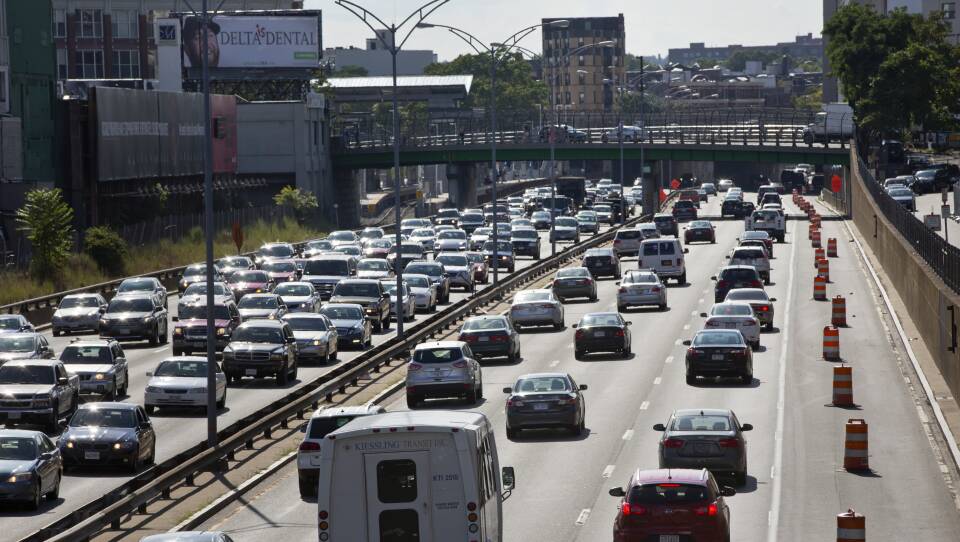Recent MBTA derailments and the related spikes in our already worst-in-the-nation traffic congestion illustrate at once the urgency, magnitude, and complexity of our state’s transportation problems. They are holding back our economy and heaping misery on our citizens -- especially those at the lower end of the economic ladder. The solutions to these problems will need to be bold, creative and multi-dimensional.
Here are some specific policy options that together would make a difference:
- Raise the gas tax -- by a lot. The gas tax should be the bedrock funding source for transportation, but Massachusetts has raised it a total of just three cents per gallon since 1991. Our gas tax ranks below 30 other states and is 20 to 25 cents per gallon lower than that of other large, coastal, economically diverse states such as California, Pennsylvania, Washington, and New York. Increasing the gas tax by 25 cents would raise approximately $750 million per year, all of it constitutionally protected to be spent for transportation purposes, including roads, bridges, and transit statewide.
- Adopt the Transportation Climate Initiative, a regional, market-based program that would reduce transportation pollution through a “cap and invest” system of emissions credits at the wholesale level. Transportation is the state’s largest source of greenhouse gasses, and tailpipe emissions contribute to health problems such as asthma and heart disease, especially in marginalized communities. The initiative, supported by Governor Baker and inspired by the successful Regional Greenhouse Gas Initiative in the electric industry, would reduce pollution while creating revenue for investment in clean transportation options.
- Implement smarter tolling on all highways within Route 128, including I-93, I-90 and parts of Route 1, Route 1A and Route 2. This proposal would reduce congestion by encouraging road use during off-peak commuting times. New revenue raised by the measure should be used to dramatically enhance rail and regional bus service on the same corridors from which the funds are raised. Of the ten largest metropolitan areas in the country, Greater Boston is the only one that does not use some form of time-of-day pricing on its tolled roads. Seattle, Los Angeles, Washington, D.C., and other competitor regions all use sophisticated tolling policies to reduce congestion on key commuting corridors. It’s time for Boston to do the same.
- Enable cities and towns to adopt regional ballot initiatives, and “value capture” tools that fund transportation projects through the concomitant increases in property values. These funding approaches would allow cities, towns, and regions to have more control over their transportation destinies and to give local voters more of a say in what gets built.
- Update regulations on transportation network companies like Uber and Lyft to reflect their dramatic growth (now more than 80 million rides per year in Massachusetts) and impact on our roads. This should include raising the fee to 6.25 percent for solo and 4.25 percent for shared rides, to encourage shared trips.
Like the problems they address, these policies are mutually reinforcing. For example, smoother commutes for drivers through the utilization of smarter tolling would also reduce local air pollution and get buses moving faster. Updating regulations on transportation network companies would generate revenue for public transit while also reducing congestion within Route 128, where most rides originate.
These policies should be implemented in ways that promote socio-economic, racial, environmental, and geographic equity. Specifically, they should be paired with programs that mitigate cost increases for low-income households through exemptions and credits. New revenue should be focused on investments in rural, suburban, and urban communities that provide households with lower-cost transportation options.
The complex and interrelated transportation problems laid bare in the past several weeks should convince policymakers that incrementalism is not a viable path for a system so central to our economy and the daily lives of millions of residents. With the Governor’s reform initiatives, we are on the right track – but we aren’t making nearly enough forward progress. These policies can get us moving again.
Chris Dempsey is the Director of Transportation for Massachusetts.




